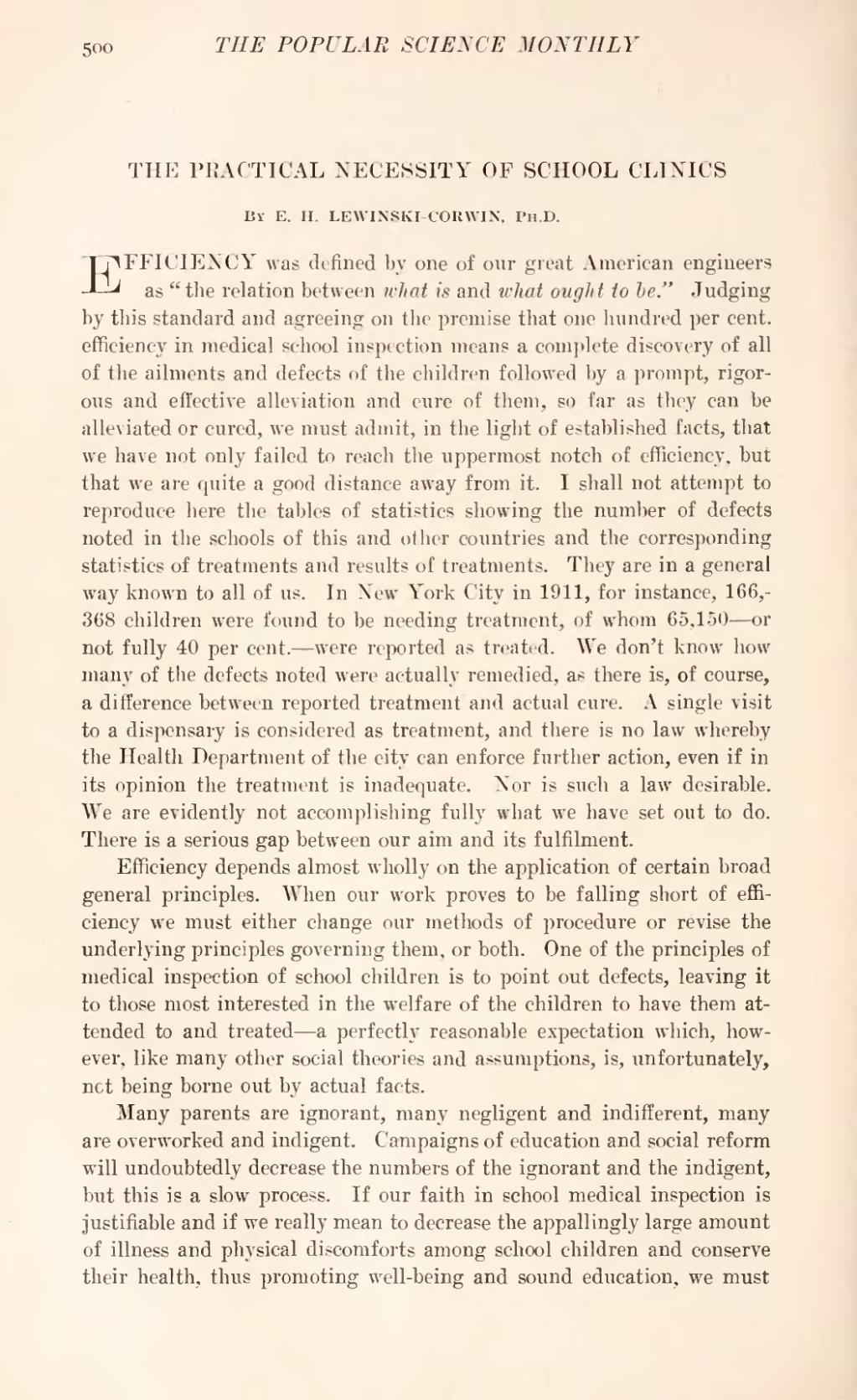| THE PRACTICAL NECESSITY OF SCHOOL CLINICS |
By E. H. LEWINSKI-CORWIN, Ph.D.
EFFICIENCY was defined by one of our great American engineers as "the relation between what is and what ought to be." Judging by this standard and agreeing on the premise that one hundred per cent, efficiency in medical school inspection means a complete discovery of all of the ailments and defects of the children followed by a prompt, rigorous and effective alleviation and cure of them, so far as they can be alleviated or cured, we must admit, in the light of established facts, that we have not only failed to reach the uppermost notch of efficiency, but that we are quite a good distance away from it. I shall not attempt to reproduce here the tables of statistics showing the number of defects noted in the schools of this and other countries and the corresponding statistics of treatments and results of treatments. They are in a general way known to all of us. In New York City in 1911, for instance, 166,368 children were found to be needing treatment, of whom 65,150—or not fully 40 per cent.—were reported as treated. We don't know how many of the defects noted were actually remedied, as there is, of course, a difference between reported treatment and actual cure. A single visit to a dispensary is considered as treatment, and there is no law whereby the Health Department of the city can enforce further action, even if in its opinion the treatment is inadequate. Nor is such a law desirable. We are evidently not accomplishing fully what we have set out to do. There is a serious gap between our aim and its fulfilment.
Efficiency depends almost wholly on the application of certain broad general principles. When our work proves to be falling short of efficiency we must either change our methods of procedure or revise the underlying principles governing them, or both. One of the principles of medical inspection of school children is to point out defects, leaving it to those most interested in the welfare of the children to have them attended to and treated—a perfectly reasonable expectation which, however, like many other social theories and assumptions, is, unfortunately, net being borne out by actual facts.
Many parents are ignorant, many negligent and indifferent, many are overworked and indigent. Campaigns of education and social reform will undoubtedly decrease the numbers of the ignorant and the indigent, but this is a slow process. If our faith in school medical inspection is justifiable and if we really mean to decrease the appallingly large amount of illness and physical discomforts among school children and conserve their health, thus promoting well-being and sound education, we must

